
 Flash News
Flash News
35-year-old man shoots himself with a gun in Vlora, sent to 'Trauma'
Iran attacks Israel with ballistic missiles
"I wanted to do it...", the testimony of the Albanian man who killed his ex-wife in Italy is revealed
Two vehicles collide in Korça, one injured
Photo/ Mother of two children, who is the Albanian woman who was stabbed to death, was divorced from the perpetrator 3 years ago
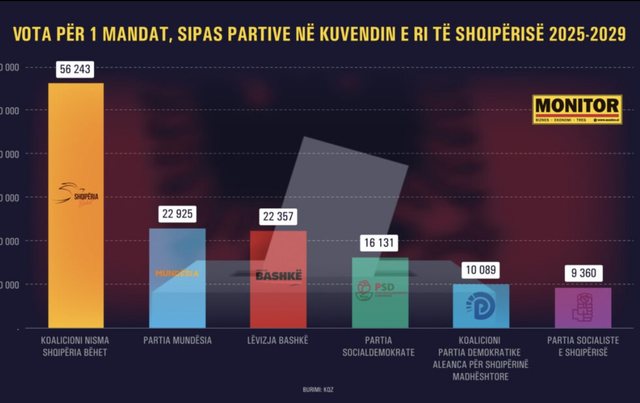
In the next Assembly of Albania, the highest representation will be held by voters of the Socialist and Democratic Parties, while many small parties, despite the votes they received, will not be able to win seats in the Assembly due to the electoral formula that was applied this time, the "proportional regional system".
Approximate data from the Central Election Commission (CEC) show that a Socialist Party mandate in government represents around 9.3 thousand voters, while an opposition coalition MP represents over 10 thousand voters.
On the other hand, Mr. Basha's Euro-Atlantic Coalition Party, although it received around 20 thousand votes, will not be represented in the Assembly. If these votes were on the side of the Socialist Party, they would translate into 4 mandates.
The most penalized are the voters of the "Initiative Albania Becomes" which has over 56 thousand votes and only secures one mandate in the Assembly. If these votes were for the Socialist Party, they would translate into 6 mandates.
The low representation of new alternatives in the next Assembly of Albania is due to the electoral formula of the regional proportional system, based on the "D'Hondt" methodology that favors the major forces.
"Our system has become locally proportional, to penalize new arrivals. In a national proportional system, new parties would succeed and be decisive for political majorities."
In regional proportional representation, the Socialist Party received 83 mandates, in national proportional representation it would have 72-74 MPs, parties with 3% would have to have 3-4 MPs, given that our electoral threshold is only 1% from 2021, previously it was 3%", analyzed Afrim Krasniqi, Executive Director of the Albanian Institute for Political Studies.
Neritan Sejamini, an economist and analyst, claims that the fact is that we have a regional electoral system, where elections are independent of each other. "In fact, we have 12 elections and not one election."
Given that the regions have completely unequal populations—from Kukës with around 62 thousand inhabitants to Tirana with around 760 thousand inhabitants, over 12 times larger than Kukës—and consequently different numbers of mandates, from 3 in Kukës to 37 in Tirana—the system manifests three main features, explains Sejamini:
"Electoral systems are never an automatic representation of the percentage of the popular vote in seats in the Assembly."
Like any electoral system (mainly through the establishment of electoral thresholds ranging from 2-3% to 10-12% in some rare cases) they punish very small parties in order to avoid the almost automatic fragmentation of parliaments. However, our system can be considered a system that has a high level of distortion of the will of the citizens and the fate of small parties.
This distortion becomes less understandable when regionalization has lost all practical sense since most of the district deputies have no significant connection to these districts. On the contrary, you have deputies who circulate from district to district in different elections. In these conditions, a national proportional system with a low threshold would be a better system than the one we have now”, says Mr. Sejamini.
Mr. Krasniqi explains that in proportional systems the legitimacy of the political force is more important than individual votes. The oldest democracies in the world are majoritarian.
Albania's electoral formula based on the proportional system is applied by EU countries such as Spain, Portugal and Belgium. This system in small countries like Albania makes the government more stable compared to neighboring countries that apply other formulas that favor the distribution of votes among more alternatives.
But on the other hand, this method burns the votes of new alternatives by not representing them in parliament. According to this system, a vote in Kukës in terms of mandate is worth more than a vote in Tirana. The formula helps political polarization and helps preserve the PS-PD duopoly.
Mr. Krasniqi says that Albania has been applying a proportional system since 2008. "This has resulted in us currently having MPs with over 21 thousand votes or even with 360 votes. The system is a matter of compromise, so a vote does not make the MP more important or weaker, but it means that the party is an institution, has a merit system and accountability.
He further analyzes that in our country not only is this prerequisite not respected, but the parties do not act as accountable and meritocratic institutions. The concern is also related to ethics and integrity: on the basis of which sovereignty and legitimacy does a deputy who is not voted for and does not represent act, and what value does a vote have in decision-making.
The electoral formula made votes more effective in large cities. For example, in Tirana the effective threshold to win a mandate was 2%, while in Kukës it rose to 19% according to the formula. In this way, the votes of small parties were valid only in large districts, while small ones remained without representation.
The new formula that was applied this year has also penalized the opposition, which has lost about 9 mandates, while the Socialist Party has gained about 9 mandates. Changes to the Electoral Code last year redistributed the number of mandates in the region, where Tirana received 1 more, while Korça lost 1 mandate.
The formula increased the loss of votes below the 1% threshold, which with the formula mainly translates into additional seats for the largest party./ Monitor
Latest news


The Assembly meets in plenary session today, what is expected to be discussed
2025-06-16 08:25:30
35-year-old man shoots himself with a gun in Vlora, sent to 'Trauma'
2025-06-16 08:11:58
Mot i kthjellët në të gjithë vendin, ja parashikimi për këtë të hënë
2025-06-16 07:57:23
Posta e mëngjesit/ Me 2 rreshta: Çfarë pati rëndësi dje në Shqipëri
2025-06-16 07:44:49

Trump vetoes Israeli plan to assassinate Iran's supreme leader
2025-06-15 21:38:01
Vote recount in Tirana, Këlliçi: We want Alimehmet's mandate
2025-06-15 21:17:41
Erdogan calls Trump: We are ready to mediate for Iran
2025-06-15 20:55:34

Netanyahu says he attacked Iran to prevent 'nuclear holocaust'
2025-06-15 20:02:04
Migrant agreements: What benefits Kosovo and why are they criticized?
2025-06-15 19:43:08
Gjirokastër/ Fire burns three hectares of grass near the Kardhiqi Bridge
2025-06-15 19:22:34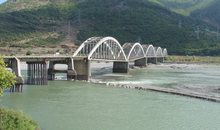

Gattuso appointed new Italy national team coach
2025-06-15 18:34:17
Over 400 people have been killed so far in Israeli attacks on Iran
2025-06-15 18:15:47
Trump warns of return to Kosovo-Serbia issue: Biden damaged it
2025-06-15 17:46:52
Bylykbashi: Current electoral system is toxic
2025-06-15 17:25:20
Trump vows for Iran-Israel deal, mentions Kosovo case with Serbia
2025-06-15 16:59:02
German tourist injured on Gjipesa beach, hit by a dinghy's propeller
2025-06-15 16:40:31

Iran attacks Israel with ballistic missiles
2025-06-15 15:48:49
Fecal beach in Durrës, the other side of the tourist miracle
2025-06-15 15:30:57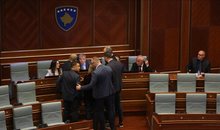
The attempt to constitute the Assembly in Kosovo fails again
2025-06-15 14:59:10
Ish-presidentit francez Sarkozy i hiqet medalja e Legjionit të Nderit
2025-06-15 14:58:46
Shkodra, with the highest population contraction after the Census
2025-06-15 14:31:47

Caused a fatal accident and left the scene, 35-year-old arrested in Lezha
2025-06-15 13:40:10


Rare! Whale appears near the Karaburun peninsula
2025-06-15 12:42:49

Stranded at sea, Border Police brings 8 foreign citizens ashore
2025-06-15 12:05:01
Who were the four Iranian generals killed in the Israeli attack?
2025-06-15 11:43:36

Simon Zereci is appointed head of the Republic Guard
2025-06-15 11:10:36
Gennaro Gattuso is expected to be the new Italy coach
2025-06-15 10:45:46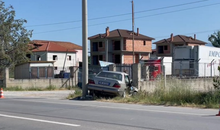
Two vehicles collide in Korça, one injured
2025-06-15 10:20:28
Trump says US can easily broker deal between Iran and Israel
2025-06-15 10:06:11


Italy/ 45-year-old Albanian woman stabbed to death by ex-husband
2025-06-15 09:16:43
Foreign exchange, the rate at which foreign currencies are sold and bought
2025-06-15 09:03:57
Horoscope, what do the stars have in store for you today?
2025-06-15 08:50:41
Albania risks falling below 2 million inhabitants before 2035
2025-06-15 08:30:11
Temperatures reach up to 32 degrees Celsius, weather forecast
2025-06-15 08:18:49
Morning Post/ In 2 lines: What mattered yesterday in Albania
2025-06-15 08:00:49

Two vehicles collide in Karbunara, one injured
2025-06-14 21:36:38
A person is found without signs of life in Peja
2025-06-14 21:18:19

Are you hungry after exercising? Experts recommend these snacks
2025-06-14 20:36:24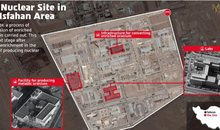

Kudos to Edi Rama for committing the May 11 theft in front of the cameras!
2025-06-14 19:57:21


These are the 3 most jealous zodiac signs
2025-06-14 19:01:29

Nesho: Iran is the violator of nuclear production
2025-06-14 18:21:43


A scrap metal collection point in Kavaja is engulfed in flames
2025-06-14 17:19:47
After Israeli attacks, Iran considers blocking the Strait of Hormuz
2025-06-14 17:02:28


Ja çfarë i ndodh organizmit tuaj nëse konsumoni çdo ditë limon
2025-06-14 16:16:23



Internationally wanted for corruption, Loran Dusha extradited from Zimbabwe
2025-06-14 15:30:04
VIDEO/ Dubai skyscraper engulfed in flames, 3,800 residents evacuated
2025-06-14 15:16:49
With these 5 ways, you can cope with the heat even at home
2025-06-14 15:08:46


Fire in Kavaja, a scrap metal collection point engulfed in flames
2025-06-14 14:43:40
Israel eliminates 9 scientists of the Iranian nuclear program
2025-06-14 14:33:34
The appeal of the GJKKO leaves the seizure of Arben Ahmetaj's assets in force
2025-06-14 14:17:14
Less appearance, more connection: How the way men love is changing
2025-06-14 14:16:13
Astrit Sinanaj is arrested in Tirana, he tried twice to kill a businessman
2025-06-14 14:02:59
Accident on Arbri Road, two foreign tourists end up in Trauma
2025-06-14 13:37:03




Tourist found dead inside apartment in Vlora
2025-06-14 12:46:40

Accident in Levan, truck with kitchen utensils ends up in the canal
2025-06-14 12:12:57

Clashes at the Order of the Psychologist, Treska declares the elections invalid
2025-06-14 11:45:55





The weekend brings luck for this zodiac sign, a pleasant surprise is coming!
2025-06-14 10:34:31
Caught with firearms and drugs in the car, two people arrested at "Ali Demi"
2025-06-14 10:25:17
Analysis: Israel's attack on Iran, ignition of conflict in the Middle East?
2025-06-14 10:16:14
Gambling in a bar, the owner and the waiter are arrested in Divjaka (NAMES)
2025-06-14 10:07:27

